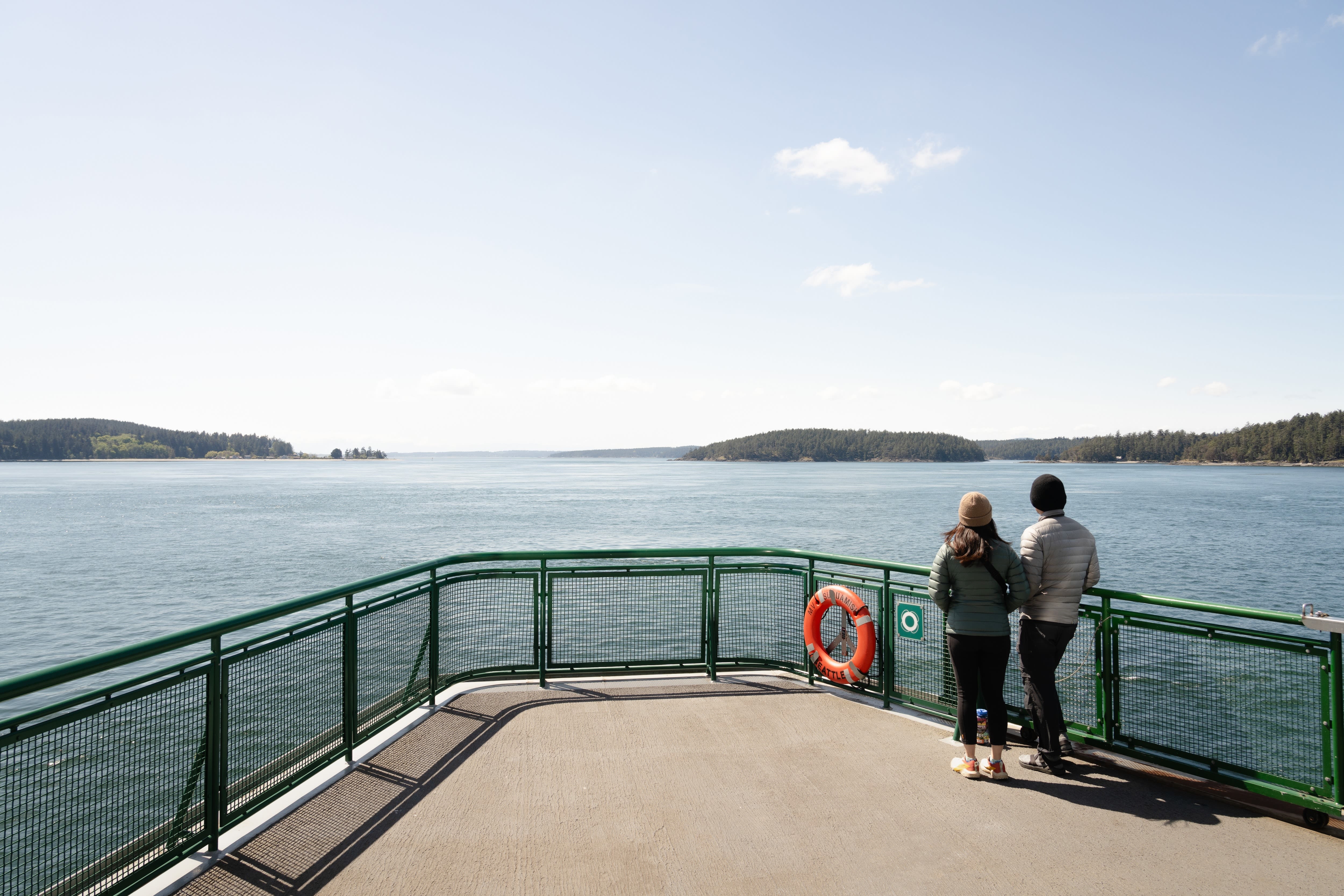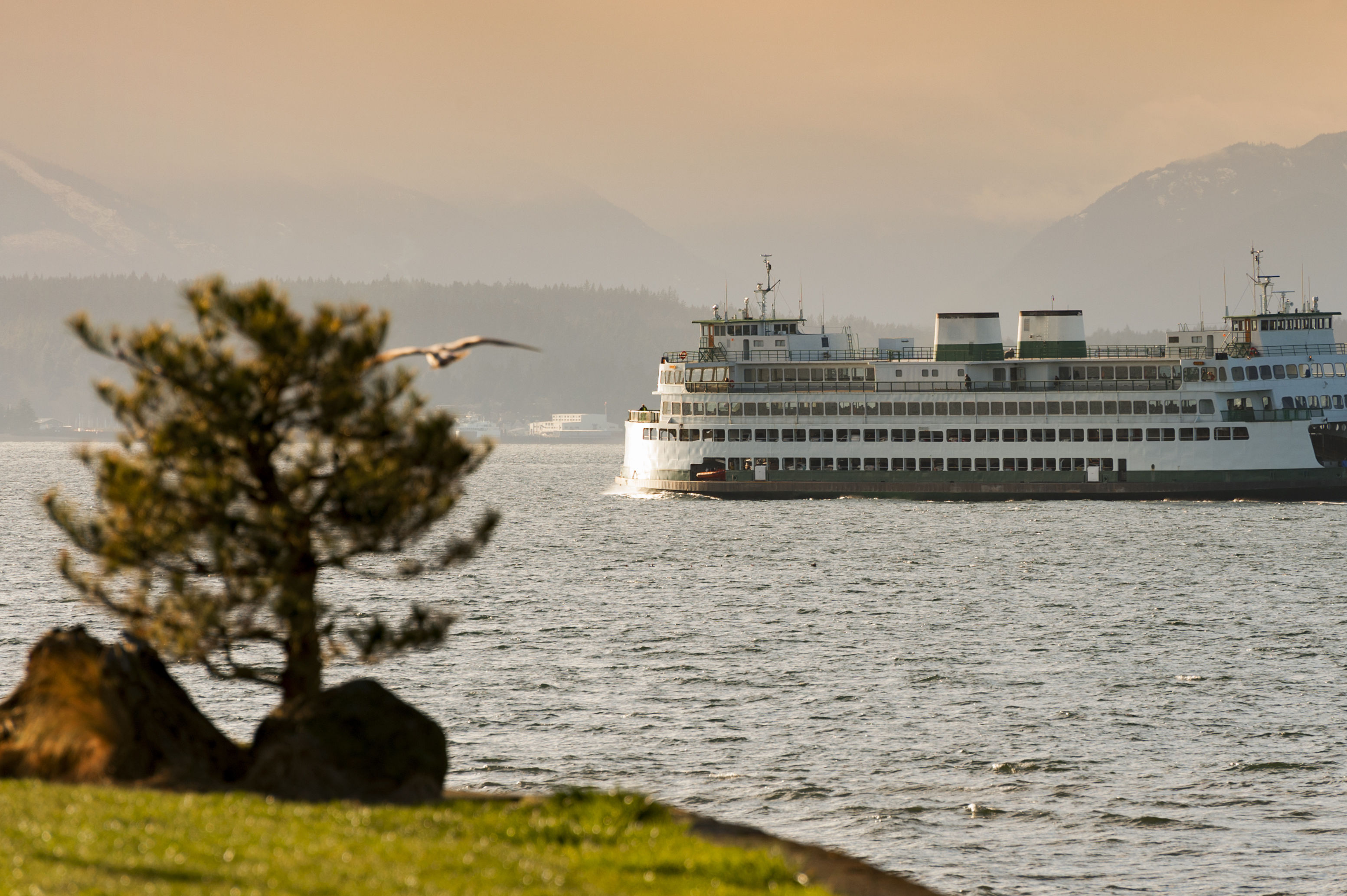Jolt: Environmentalists Lose Climate-Change Appeal

This week, the Washington State Court of Appeals ruled against local greens at the Cascade Bicycle Club, Futurewise, and the Sierra Club in a longstanding complaint.
The environmental groups had sued the Puget Sound Regional Council, the agency that oversees long-term transportation planning in King, Kitsap, Pierce and Snohomish Counties. The suit claimed PSRC wasn't complying with a 2007 state law that mandates reduction in greenhouse gas emissions to 1990 levels by 2020, 25 percent below 1990 levels by 2035, and 50 percent below 1990 levels by 2050 in its 2010 plan, known as T2040 (Regional Transportation Plan 2040).
I'm sensing a theme: Earlier this month, the Washington Environmental Council was in U.S. federal court challenging Gov. Jay Inslee's Department of Ecology arguing that the state wasn't complying with its own plan to regulate carbon emissions.
In this week's ruling against the CBC, Futurewise, and the Sierra Club, the court said PSRC was under no mandate to meet the state rule because the greenhouse gas reduction goals applied to the state as a whole, and made no directives about regional goals or goals for specific economic sectors (transportation in this case.)
Judge J. Robert Leach offered an analogy, arguing that a state requirement for a 15 percent budget reduction wouldn't dictate a 15 percent reduction for every line item. That kind of logic, the opinion states, "ignores the possibility of eliminating some items from the budget or alternatively, reducing the cost of some by more than 15 percent and others by less."
The judge explicitly draws the connection to the greenhouse gas reduction mandate: "Similarly, the state can achieve the mandated greenhouse gas reductions by elminating some emission sources, or, alternatively, by reducing some sources more than the required amount and others by less." In other words, a family wouldn't cut 15 percent of its grocery costs and 15 percent of its eating out costs during a rough patch. They'd more likely eliminate eating out altogether while scaling back grocery costs by, say, one percent.
The biggest budget item, to stick to the court's analogy, when it comes to greenhouse gases, is auto emissions, which cause around 35 percent of Washington's climate pollution. Unwittingly, the court seems to be seconding the environmentalists' call for climate change action. To be clear: The environmental plaintiffs weren't saying PSRC's plan should mandate that the four-county region reduce emissions to 1990 levels by 2020 (for example). Rather, they were arguing that each region should have to reduce its emissions by a level proportional to its greenhouse gas contributions.
However, while the judge's analogy wasn't exactly right, it did highlight the court's basic point: "Cascade claims that this language [the state law] requires a transportation plan for four counties to achieve the same reduction within those counties. But the plain language of [the law] does not require pro rata emissions reductions."
The court extended this argument, noting that the state law "did not require sector-specific measures," nor did it limit approaches within sectors; "the Department of Ecology has identified three means of reducing emissions from on-road vehicles: reducing vehicle miles traveled (VMT), increasing use of clean fuels, and increasing the use of clean vehicles." They add: "PSRC's jurisdiction extends only to [vehicle miles traveled] reduction."
Rod Brown, the attorney for PSRC, echoed these points, telling me the state's reduction goals were predicated on doing things like phasing out coal power at TransAlta's Centralia coal fired power plant (which the state did in 2011), rather than going after imprecise targets like auto emissions, which PSRC can only combat with things like altering land use patterns and imposing user fees on drivers, but cannot, for example, dictate new technologies to rein in emissions.
Basically, PSRC's argument is that lowering emissions from cars is a longterm strategy, and it's more efficient in the short term to go after low-hanging fruit like coal power rather than dictating equal, across-the-board cuts on regions and sectors.
While the court forcefully backed up PSRC (they also dismissed the environmentalists' assertion that PSRC did not give fair consideration to an alternate plan that took a more aggressive approach to lowering emissions), the crux of the court decision—the budget analogy—actually seems to support the environmentalists.
Consider: The biggest budget item, to stick to the court's analogy, when it comes to greenhouse gases, is auto emissions, which cause around 35 percent of Washington's climate pollution (the transportation sector as a whole, including cars, is 50 percent).
I would add: PSRC's four-county region has a disproportionate share of the state's population and economic activity (more people, more money, and more industry) which translates to a disproportionate share of auto emissions. Cars are the dinners out line item in the family budget analogy.
I have calls in to all the plaintiffs. In a press release condeming the court ruling, the plaintiffs, desrcibing PSRC's "failing" 30-year-plan, noted:
Under PSRC’s Transportation 2040 plan (T2040), there will be no change in vehicle miles traveled per capita in 2040 compared to the baseline. PSRC’s plan continues to favor widening local roadways and state highways and supporting low-density development on the urban fringe. T2040 contains almost 1000 miles of new and expanded roadways, leaving cities without funds to complete the comprehensive networks of transit, pedestrian, and bicycle infrastructure.




